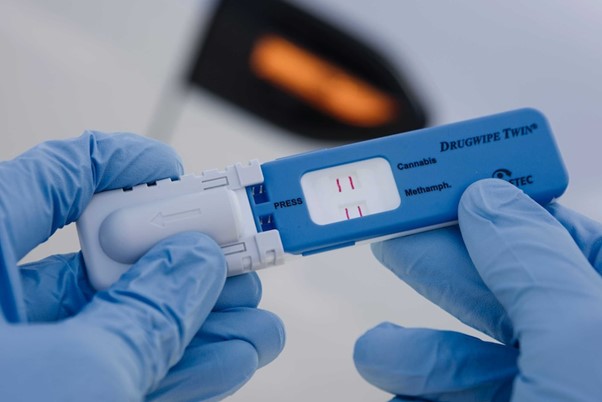The NSW government have introduced a new offence of Drink Driving / PCA combined with the presence of an illicit drug in oral fluid or drug driving.
For matter where you are charged and/or convicted for the first time in five years, this charge will only apply to middle and high range Prescribed Concentration of Alcohol (PCA).
For a second or subsequent offence within the last five years, this offence will apply for any level of Prescribed Concentration of Alcohol (PCA) and positive oral fluid sample.
What penalty could I be facing for a combined offence (Drink Driving / PCA and Illicit drug in Oral Fluid)
This offence can be quite complicated in the sense that, it is effectively combining two existing offences of Drink driving and drive with illicit substance presence in oral fluid sample.
with illicit substance presence in oral fluid sample.
When you are pulled over you will effectively be given two tests, one for illicit substances and another for a breath test. If you are positive for both tests, then the driver is place under arrest for the combined offence.
If your sample is sent to the lab and no illicit substance is detected the Police will only proceed with the relevant PCA offence and vis versa if you pass the breath analysis the Police will only proceed with the illicit substance offence.
Regardless, of which offence category you fit into there is an immediate licence suspension for any combined offence charged.
At Catron Simmons Lawyers, we can offer you qualified advice best suited for your situation to ensure the best outcome for your matter.
| Combined Offence – First Offence | ||
| Mid Range PCA + Illicit Substance | High Range PCA + illicit substance | |
| Maximum Fine | $3,300 | $5,500 |
| Maximum Imprisonment | 18 Months | 24 Months |
| Minimum Disqualification | 12 Months | 2 years |
| Maximum Disqualification | Unlimited | Unlimited |
| Automatic Disqualification | 2 years | 4 years |
| Interlock Period (minimum) | 12 months | 2 years |
Combined Offence – Second Offence
| Low, Novice & Special Range + Illicit Substance | Mid Range PCA + Illicit Substance | High Range PCA + illicit substance | |
| Maximum Fine | $5,500 | $6,600 | $11,000 |
| Maximum Imprisonment | 18 Months | 2 years | 2 years |
| Minimum Disqualification | 18 Months | 2 years | 3 years |
| Maximum Disqualification | Unlimited | Unlimited | Unlimited |
| Automatic Disqualification | 2 years | 4 years | 6 years |
| Interlock Period (minimum) | 12 months | 2 years | 4 years |
In circumstances of aggravation especially involving High Range PCA the guideline judgement would still apply, meaning it is unlikely that you will be able to avoid a conviction in most circumstances. The reason for this is due to the seriousness of the offence and a Guideline Judgement from the NSW Criminal Court of Appeal. This judgement held that section 10 (CRO without conviction) would be rarely utilised.
The guideline judgement also outlines cases or scenarios where the court would consider a custodial sentence such as where a collision occurs etc.
Interlock Orders
An Interlock orders is an order made by the court during sentencing at court and follows a period of suspension or disqualification. The Interlock orders in NSW are managed by Transport NSW.
An interlock device is an in-car breathalyzer which is installed in a vehicle. It prevents a vehicle from being started until a negative alcohol sample is provided. Contrary to popular belief the interlock device does not affect the operation of the vehicle and cannot turn off the vehicle’s engine once it is running.
More information on interlock devices and orders.
Can I be exempt from an Interlock Order?
In certain circumstances a person can be exempt from an interlock order in NSW, this is determined during sentencing at court. The grounds for the application differs depending on the type of offence and if it is a persons first or subsequent offence.
An exemption order generally speaking when:
- It would cause severe hardship to the person; and
- The making of the interlock exemption order is more appropriate in all the circumstances
Generally, these orders can centre around a person that does have access to a car or there is medical condition that prevents you from providing a sample of your breath. Both of these submissions would require extensive evidence to the court to be able to make a decision.